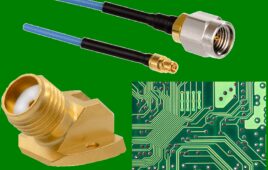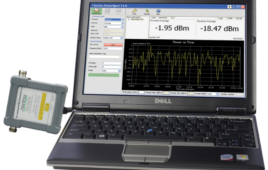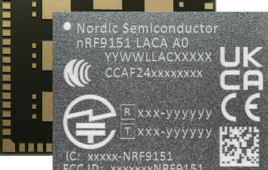SABIC is delivering a range of highly advanced polymer and engineering thermoplastic solutions that allow manufacturers in the consumer electronics and lifestyle industries to create sleeker, more stylish products that meet environmental, high-performance and aesthetic requirements. A range of relevant applications that demonstrate this will be showcased at K 2013, including the new SONY DSC-HX300 Cybershot camera, a Canon Inkjet printer, Husqvarna’s Gardena lawnmowers, and Samsonite’s range of hard shell suitcases. The market for consumer electronics and lifestyle products is growing rapidly, propelled by an expanding global middle class. According to a report conducted by Clearwater Corporate Finance in 2012, annual spending by the global middle class will reach $20 trillion by 2020. Furthermore, Global Industry Analysts Inc. has calculated the consumer electronics sector alone will be worth up to $1.4 trillion by 2015.
“SABIC is committed to being an innovative and trusted partner to our customers, delivering material technologies that help them adapt to the rapidly growing and evolving global consumer markets,” Matt Gray, Director, Consumer Electronics Marketing for SABIC’s Innovative Plastics business says. “Our solutions help our customers create more sustainable products, while simultaneously enhancing design freedom to help set their brands apart in the ultra-competitive consumer markets. In addition, a suite of SABIC material solutions has been developed with an eye on sustainability, allowing customers to use post-consumer recycled (PCR) content, as well as achieve enhanced energy efficiency and flame retardance. Our innovations enable our customers to not only meet consumer needs today, but also the needs of tomorrow in a more resource tight and environmentally savvy world.”
Sustainable Solutions for Consumer Electronics
SABIC recognizes that delivering solutions that are developed with sustainability in mind is a key part of helping customers succeed in the markets where they operate. The company recently collaborated with Canon to incorporate more recycled content in its Inkjet Printer, leading to a closed loop recycling program. SABIC’s recycling initiative helped convert parts of used copiers into raw material that is then reused in ink-jet printers. The most recent generation, the NORYL™ GN390 resin, was launched in 2012 to help Canon become registered with EPEAT, the Electronic Product Environmental Assessment Tool. In the closed-loop recycling process, Canon’s High Impact Polystyrene (HIPS), collected from returned copier machines, is converted to SABIC’s NORYL™ GN resin which is then used to manufacture new products and achieve green procurement standards. The system helps Canon use recovered resources to manufacture their printers, helps create value out of post-use materials, as well as returning valuable materials to the life cycle.
SONY, as part of its global environmental plan, “Road to Zero,” turned to SABIC when seeking a sustainable material solution for its DSC-HX300 Cybershot ™ compact digital camera. For the first time, SONY was able to use a post-consumer recycled thermoplastic material to achieve high quality and performance standards suitable for its external camera housing, where surface aesthetics, impact resistance and flame retardance are key considerations. SONY incorporated its proprietary coating technology with SABIC’s CYCOLOY™ RCY6214 grade of recycled material, expanding the use of recycled materials to 10 parts for this model, or 30% of the camera’s plastic materials. The SABIC material also provided improved processability, resulting in fewer manufacturing defects, and enabled UL94 HB certification at 0.3mm.
Enhanced Performance and Design Freedom for Consumer Goods
“SABIC’s solutions have allowed its customers to excel in the markets where they operate by helping them create products that look and perform better than their competitors’,” says Diederik Goyvaerts, Manager, Technical Marketing PP for SABIC’s Polymers business. “A customer of ours for over 15 years, Samsonite has chosen SABIC’s® PP (polypropylene) copolymers for the majority of its hard shell range of suitcases. Compared to traditional grades of polypropylene used in rigid packaging, our advanced solutions offer substantial cost savings in the injection moulding process through faster cycle times, lower mould pressure, wall thickness reduction and energy savings. The end result has also helped our customer create lighter, stronger suitcases with more eye-catching designs.”
SABIC’s PP block copolymer solutions have also been selected by Dorel Juvenile for use in its award winning Maxi-Cosi car seat range. The SABIC materials helped all Maxi-Cosi car seats meet the most recent European safety standard, ECE R44/03, by delivering very high impact resistance and light-weight, combined with an excellent stiffness level. From a design point of view, SABIC’s PP solutions also delivered the exceptional flow properties that were necessary to fill the complex shaped molds and give the product an attractive surface appearance. SABIC’s solution also delivered reduced cycle times, leading to increased efficiency and cost reduction.
SABIC’s commitment to delivering long-lasting, enhanced performance can also be witnessed through Husqvarna’s Gardena lawn mowers. The use of SABIC CLEARPACT CPC35C and SABIC PP PHC27 resins delivers a number of benefits, especially when compared to traditionally used materials such as steel. Among these is exceptional resilience in outdoor environments, high impact resistance for the rotating blades, superior aesthetics and high heat performance. The excellent impact properties of PHC27 have allowed the cutter deck design to be optimized with reduced wall thickness, saving on weight and reducing molding cycle time.
Along with these important examples of material innovation on display at this year’s K Show, SABIC has also recently launched its new SABIC PP PHC28 copolymer grade. This new technology enables customers to manufacture current models in existing molds, while significantly reducing energy consumption, CO2 emissions and the overall cost of conversion by 15% compared to market standard grades. This new solution is tailored for lighter, smarter and stronger designs, important for customers in the home appliances, electronics and durable consumer products segments.
For more information, visit www.sabic.com.




